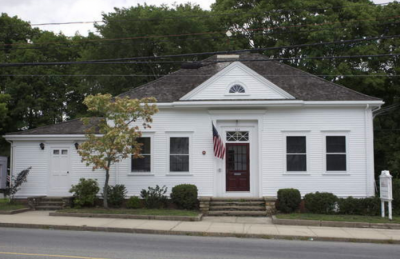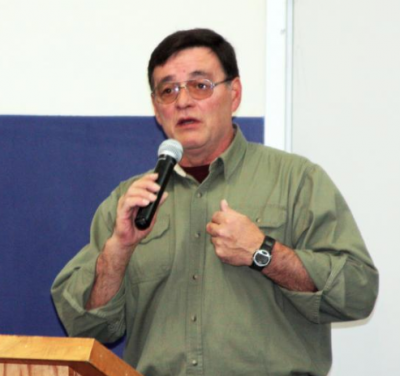Wareham officials wary as potential FCC rule change could slash funding
By broadcasting everything from sports to government meetings, Wareham Community Television connects residents to their community. But a new rule change proposed by the Federal Communications Commission could end the era of local access television nationwide.
The potential change could drain funding for WCTV and television studios nationwide, according to Keith Thibault, Chairman of the Alliance for Community Media and Director of Fall River Community Media. The Alliance advocates for local community media.
That uncertainty has already had a local impact. WCTV Director Steve Ruiz said plans to purchase the station’s headquarters, located in Wareham’s former Town Hall at 505 Main St., are on hold.
“Our board of directors instructed me to wait last month,” said Ruiz on the plans. “We’re just going to have to wait and see.”
In July, WCTV bid $125,000 to purchase the building. Town and WCTV officials have been in talks since. The station has used the building as its base of operations since 2009 and is planning to put a 1,800 square-foot addition on the back of the existing structure for studio space. All of that money would come from WCTV coffers, said Ruiz.
Local access television stations are funded through a franchise fee cable companies pay to municipalities as compensation for using town-owned land to build the necessary infrastructure, like cable lines, to deliver cable service to residents.
The federal Cable Communications Policy Act, passed in 1984, governs these fees, which are used to fund public, educational, and government access (PEG) programming.
Under the proposed rule change, Thibault said cable companies could be allowed to offset franchise fees by deducting certain “in-kind services” from the total granted to cities and towns. However, exactly what cable companies could be allowed to count as “in-kind” is a complete mystery.
“It could be extremely dire, without knowing specifically what cable companies will look to put into in-kind services,” Thibault said.
Like Thibault, Ruiz is closely monitoring the potential change. WCTV’s budget does not receive a dime of town funding, and is covered by, on average, $200,000 per year from the two cable companies offering services locally, Comcast and Verizon.
Should the FCC’s proposed rule pass, there will likely be big changes on the way for the station, said Ruiz. Staff could be cut and plans to buy the building might be scrapped, however, Ruiz said it’s too soon to say. Ruiz said WCTV could weather the potential changes better than smaller stations, but feared many towns will see a reduction in coverage.
“Smaller stations would be absolutely devastated if those funds were reduced,” Ruiz said.
He added that no matter what happens, WCTV is committed to providing coverage of meetings, events and anything else that happens in Wareham.
“If I have to go out and film these things myself I will,” said Ruiz. “We’re going to remain committed to the community.”
Depending on if, or what, the FCC clarifies cable companies can use to offset the fee, cable companies could classify anything from the monetary value of local access television channels and equipment, to customer service hubs some companies like Comcast operate in its coverage area as “in-kind services.”
“It could result in a complete elimination of community media, worst case,” Thibault said.
The FCC announced the proposed change in September, and has been soliciting comments from the public on the rule change. The final comment period ended on Dec. 14, at which point the FCC could hold a vote on approving or denying the rule change at any time.
“We have no idea when that will be,” Thibault said. “It’s up to the FCC.”
Ruiz said it’s not too late for people to weigh in on the matter. One of the best ways, he said, is to contact Massachusetts senators Ed Markey and Elizabeth Warren (D-MA).
Both authored a letter, along with several other senators, opposing the proposed rule change in October.
"This is a lose-lose for [local franchising authorities] and the residents they serve," wrote the senators. "We fear this proposal will result in a dire drop in resources for PEG channels throughout the nation."
















